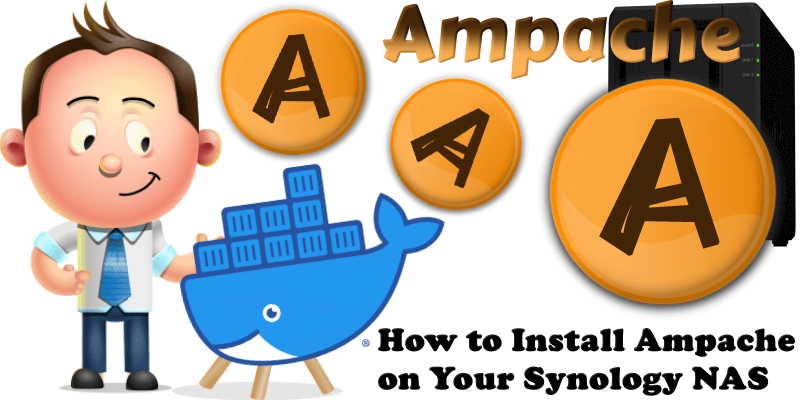
Ampache is a web based audio/video streaming application and file manager allowing you to access your music & videos from anywhere, using almost any internet enabled device. In this step by step guide I will show you how to install Ampache on your Synology NAS using Docker & Portainer.
This guide works perfectly with the latest Ampache v7.2.0 release.
STEP 1
Please Support My work by Making a Donation.
STEP 2
Install Container Manager via Synology “Package Center”. If you run an older DSM version (under 7.2), search for Docker instead of Container Manager.
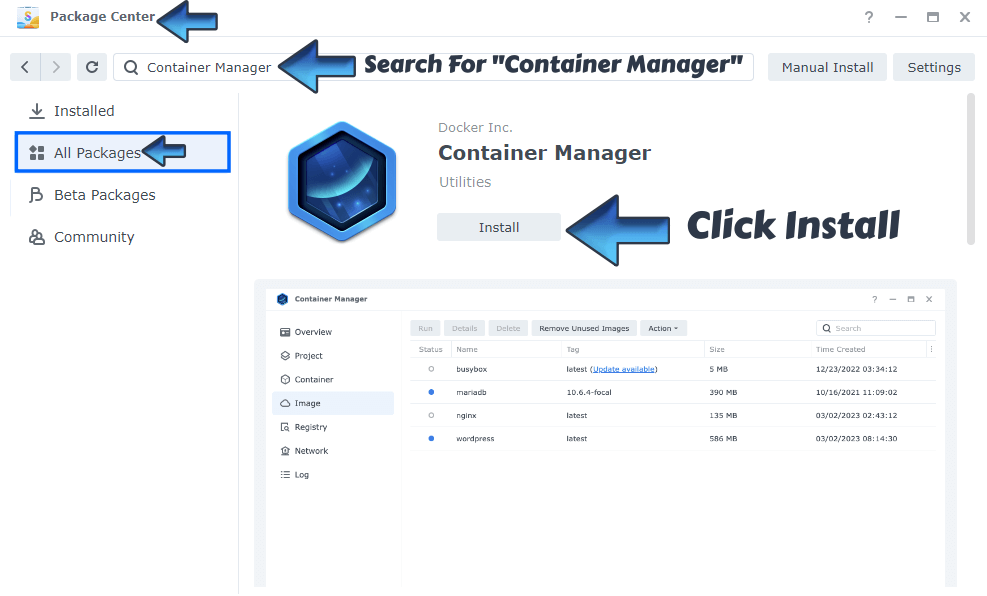
STEP 3
Make sure you have a synology.me Wildcard Certificate. Follow my guide to get a Wildcard Certificate. If you already have a synology.me Wildcard certificate, skip this STEP.
STEP 4
Go to Control Panel / Login Portal / Advanced Tab / click Reverse Proxy. Follow the instructions in the image below.
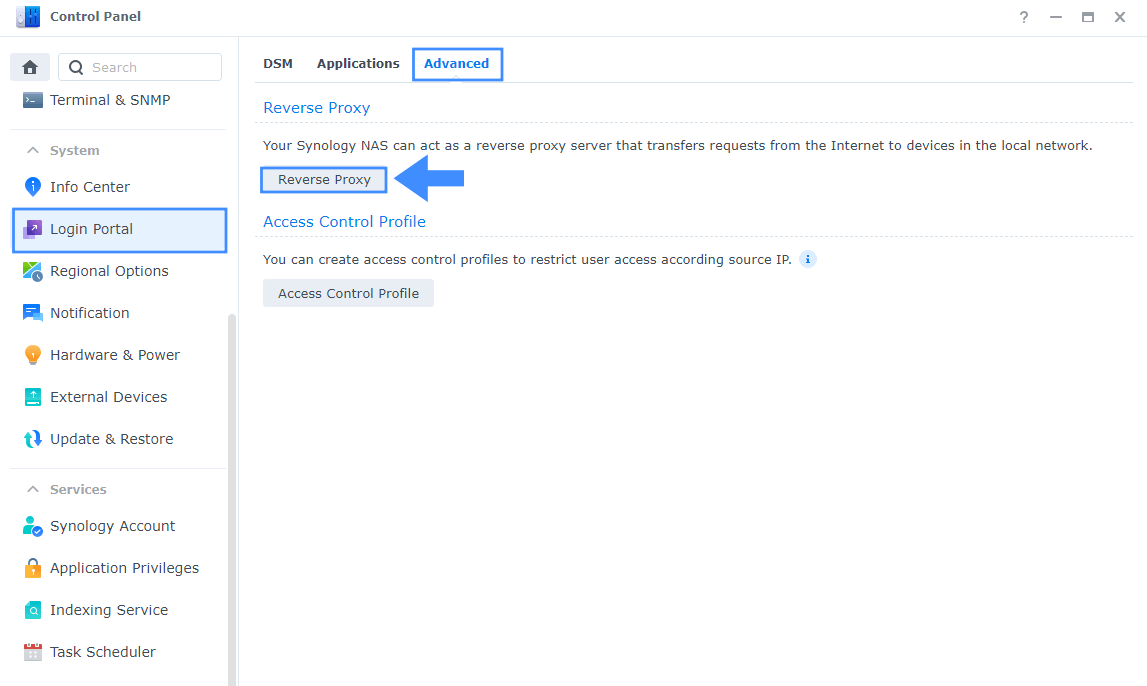
STEP 5
Now click the “Create” button. Follow the instructions in the image below.
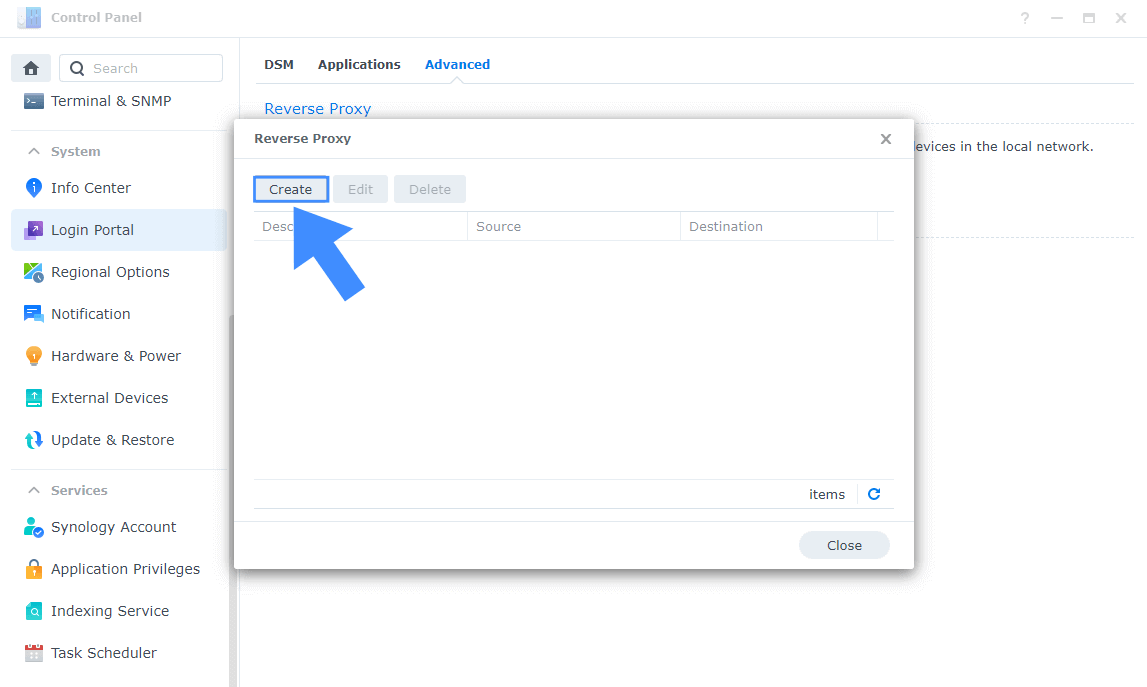
STEP 6
After you click the Create button, the window below will open. Follow the instructions in the image below.
On the General area, set the Reverse Proxy Name description: type in Ampache. After that, add the following instructions:
Source:
Protocol: HTTPS
Hostname: ampache.yourname.synology.me
Port: 443
Check Enable HSTS
Destination:
Protocol: HTTP
Hostname: localhost
Port: 9820
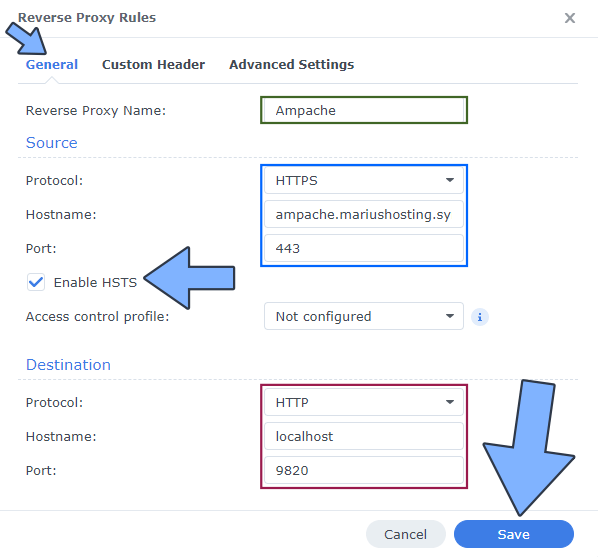
STEP 7
On the Reverse Proxy Rules click the Custom Header tab. Click Create and then, from the drop-down menu, click WebSocket. After you click on WebSocket, two Header Names and two Values will be automatically added. Click Save. Follow the instructions in the image below.

STEP 8
Go to Control Panel / Network / Connectivity tab/ Check Enable HTTP/2 then click Apply. Follow the instructions in the image below.
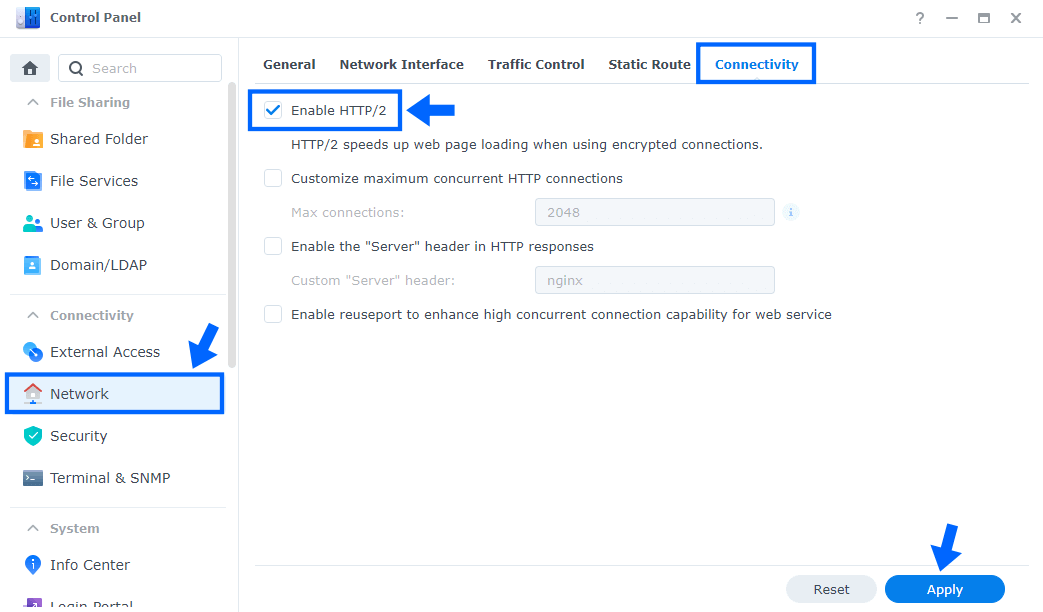
STEP 9
Go to Control Panel / Security / Advanced tab/ Check Enable HTTP Compression then click Apply. Follow the instructions in the image below.
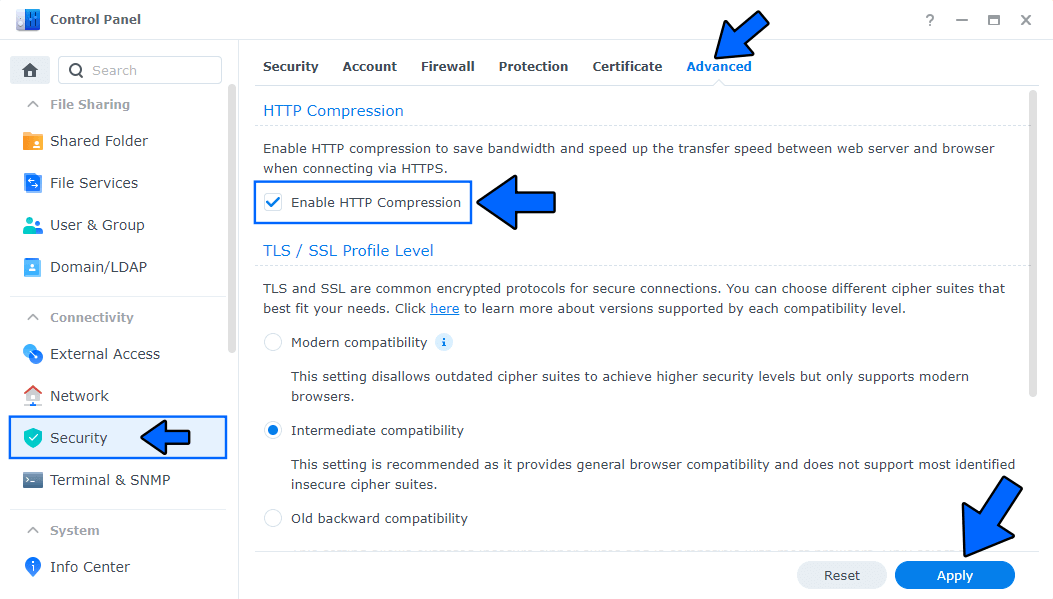
STEP 10
Go to File Station and open the docker folder. Inside the docker folder, create one new folder and name it ampache. Follow the instructions in the image below.
Note: Be careful to enter only lowercase, not uppercase letters.
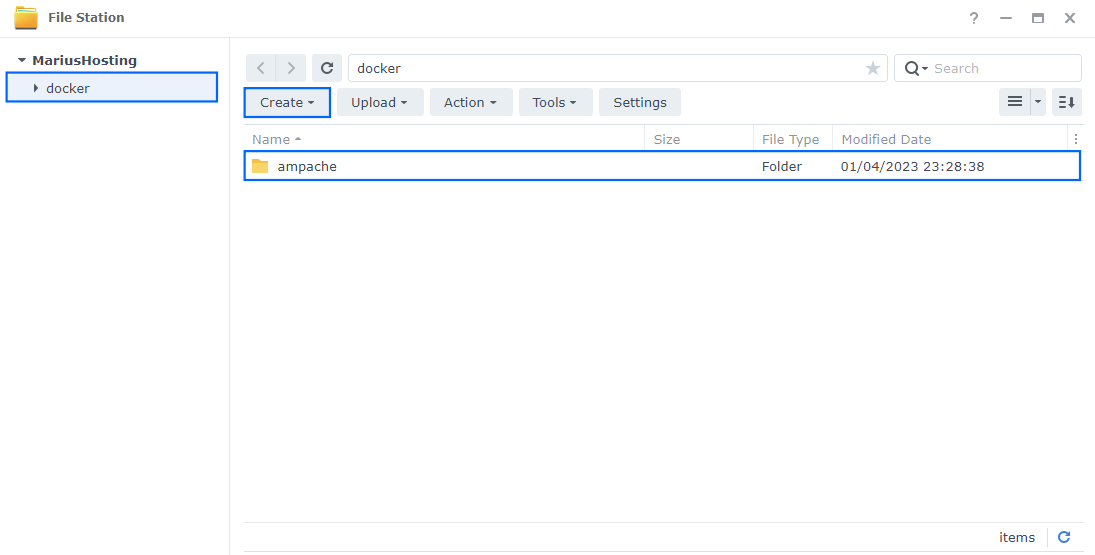
STEP 11
Now create four new folders inside the ampache folder that you created at STEP 10 and name them config, db, logs, media. Follow the instructions in the image below.
Note: Be careful to enter only lowercase, not uppercase letters.
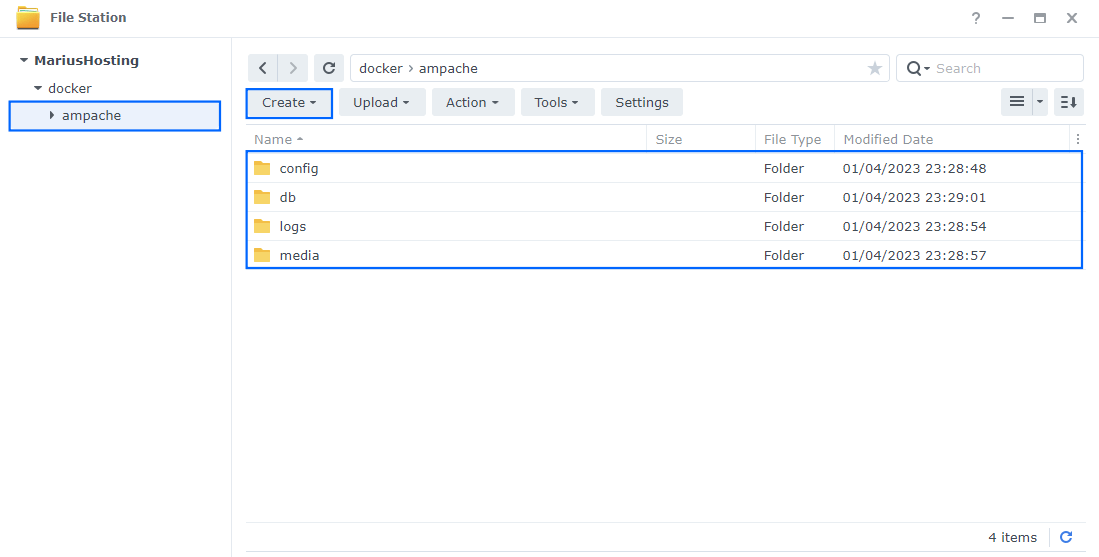
STEP 12
Right click on the config folder that you have previously created at STEP 11 then click Properties. Follow the instructions in the image below.
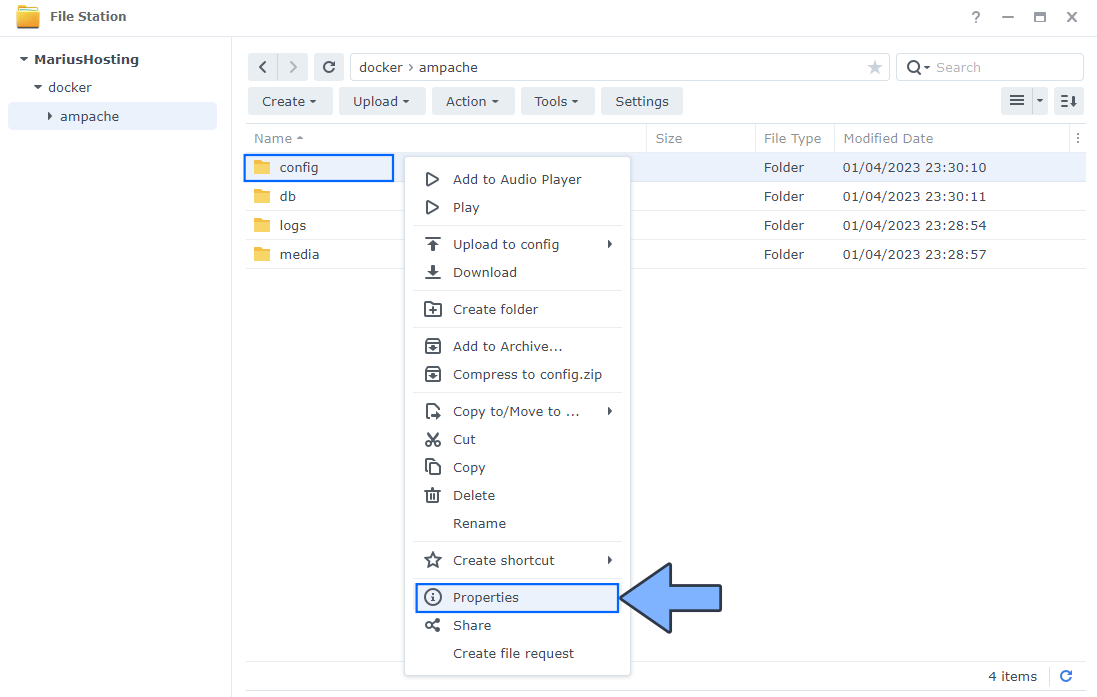
STEP 13
Go to the Permission tab then click Advanced options. From the drop-down menu choose “Make inherited permissions explicit“. Follow the instructions in the image below.
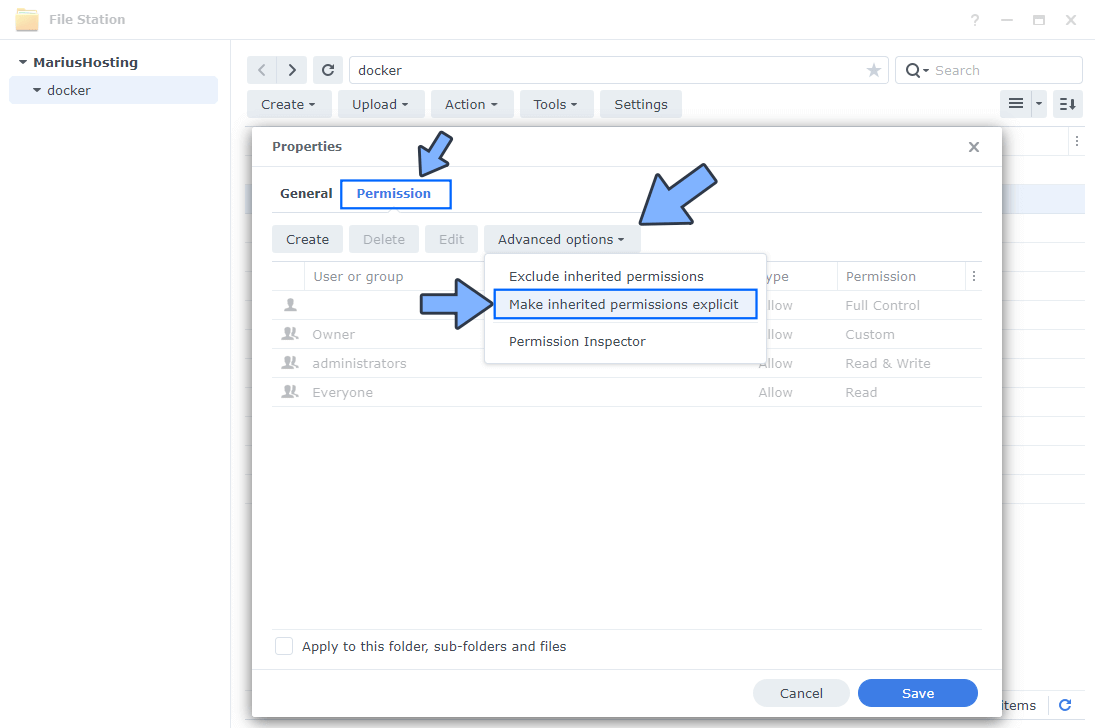
STEP 14
Select Everyone then click the Edit tab. Follow the instructions in the image below.
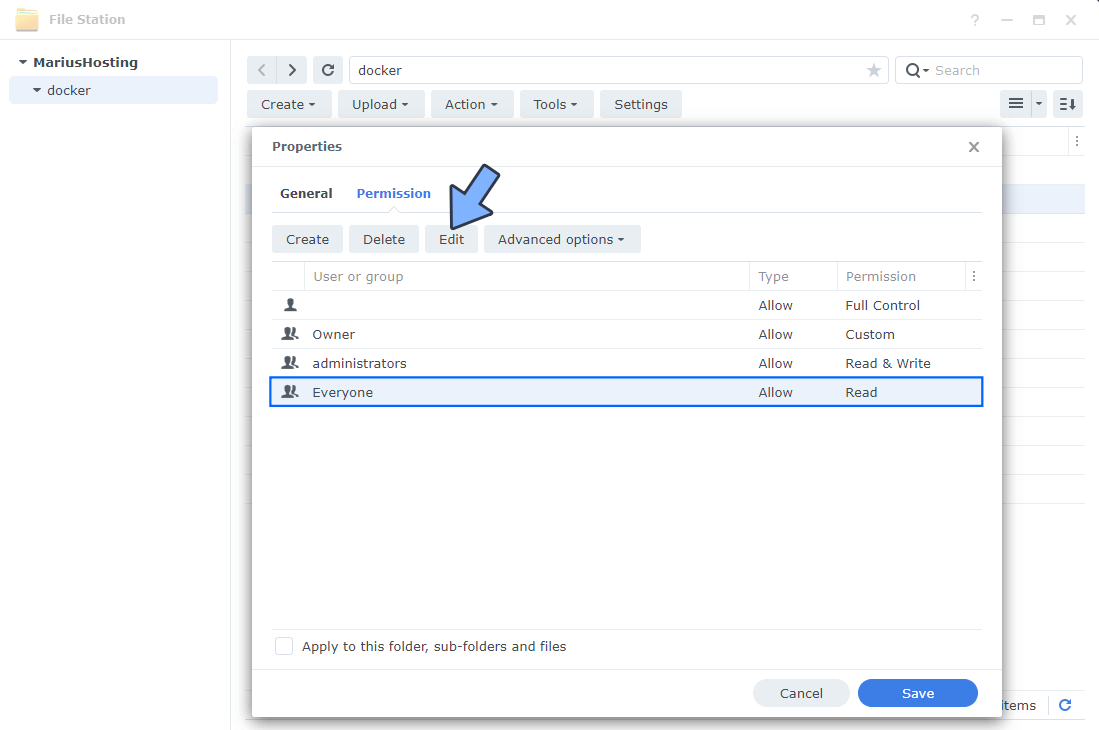
STEP 15
Check all Read and Write Permissions. Click Done. Follow the instructions in the image below.
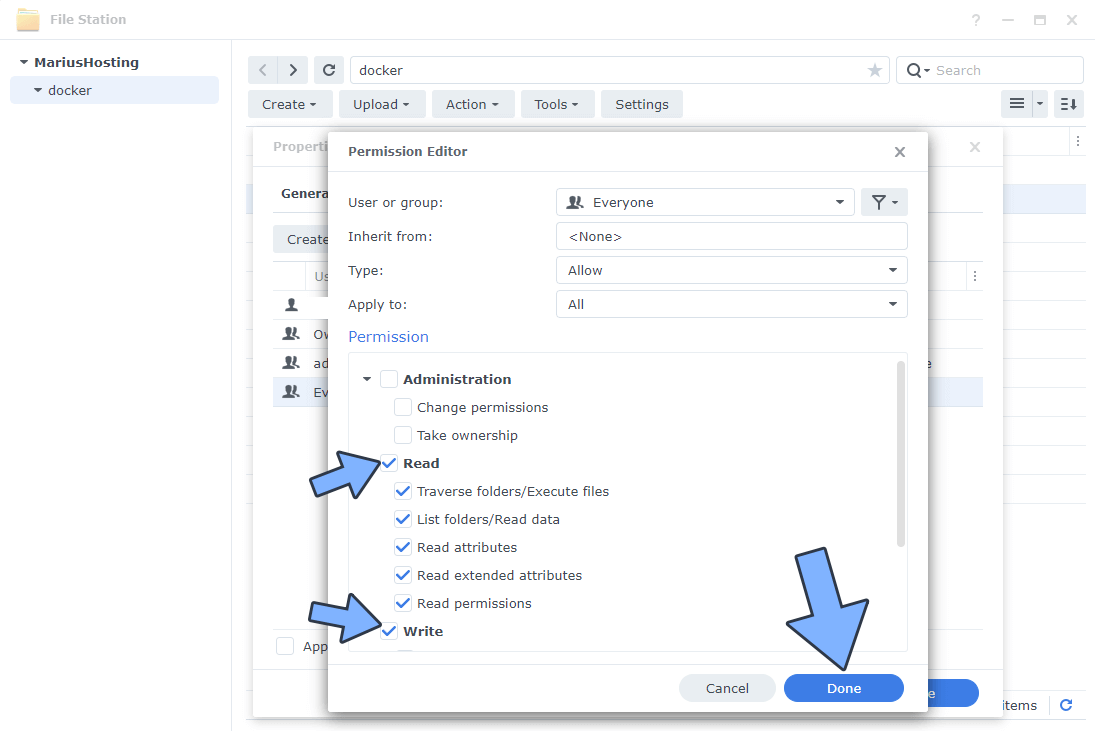
STEP 16
After you click Done on STEP 15, check “Apply to this folder, sub-folders and files“. Click Save. Follow the instructions in the image below.
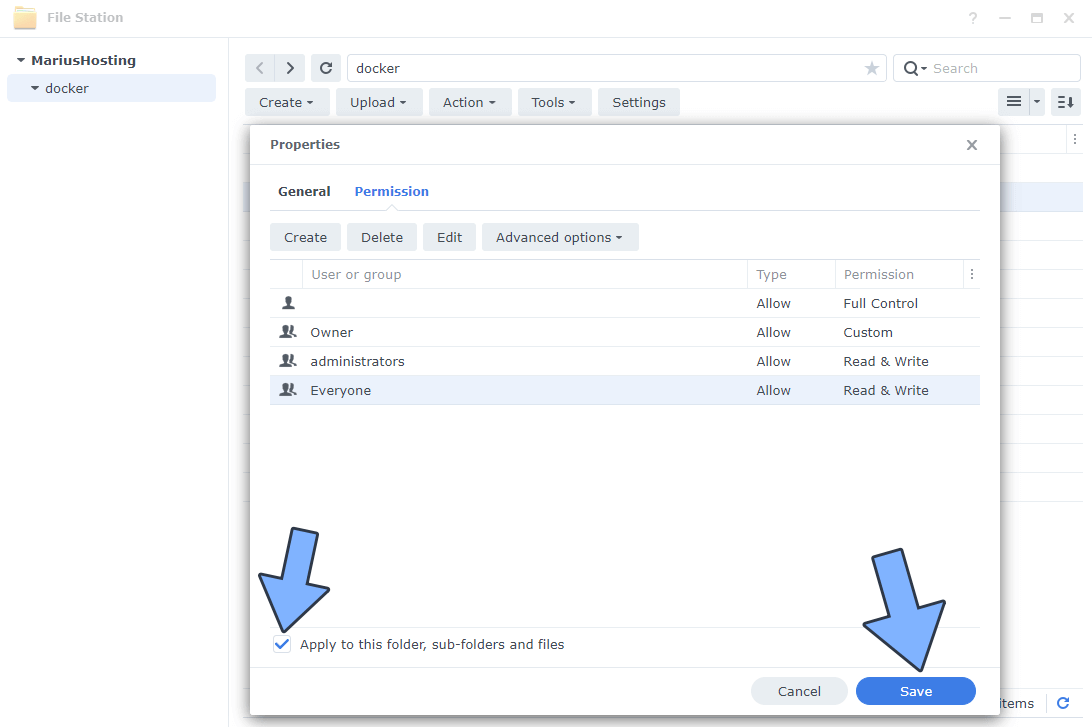
STEP 17
Go to Control Panel / Task Scheduler / Create / Scheduled Task / User-defined script. Follow the instructions in the image below.
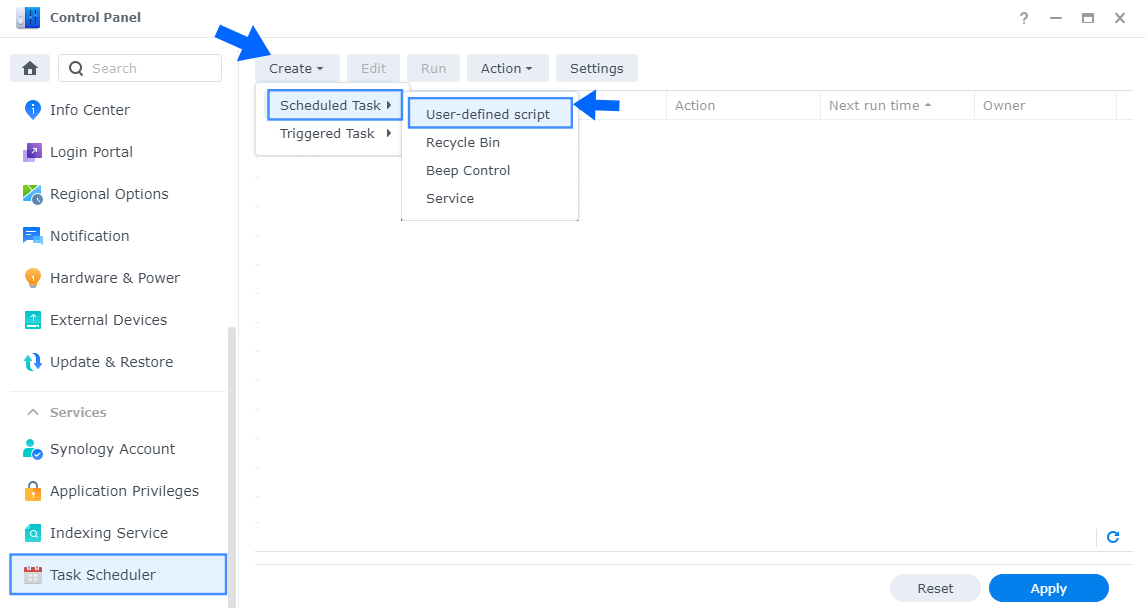
STEP 18
Once you click on User-defined script, a new window will open. Follow the instructions below:
- General: In the Task field type in Install Ampache. Uncheck the “Enabled” option. Select root User.
- Schedule: Select Run on the following date then select “Do not repeat“.
- Task Settings: Check “Send run details by email“, add your email then copy paste the code below in the Run command area. After that, click OK.
docker run -d --name=ampache \ -p 9820:80 \ -v /volume1/docker/ampache/config:/var/www/config \ -v /volume1/docker/ampache/logs:/var/log/ampache \ -v /volume1/docker/ampache/media:/media \ -v /volume1/docker/ampache/db:/var/lib/mysql \ -v /volume1/docker/ampache/db:/etc/mysql \ --restart always \ ampache/ampache:latest
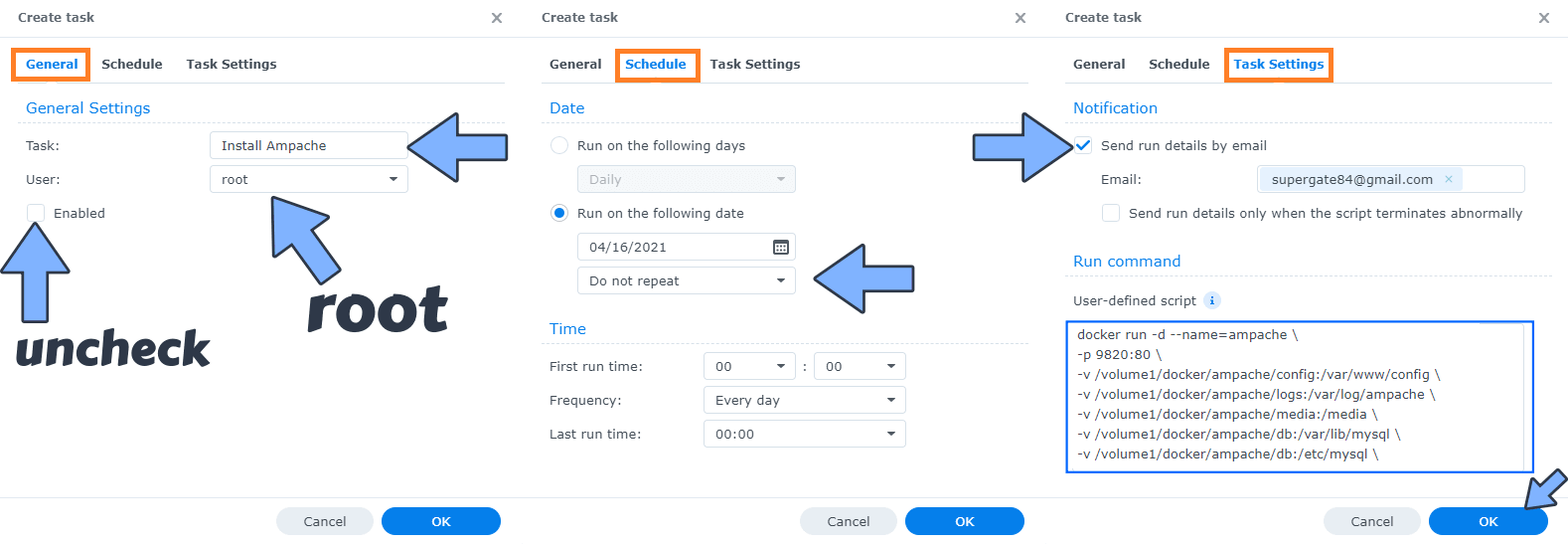
STEP 19
After you click OK on STEP 18 a new warning pop up window will open. Click OK.
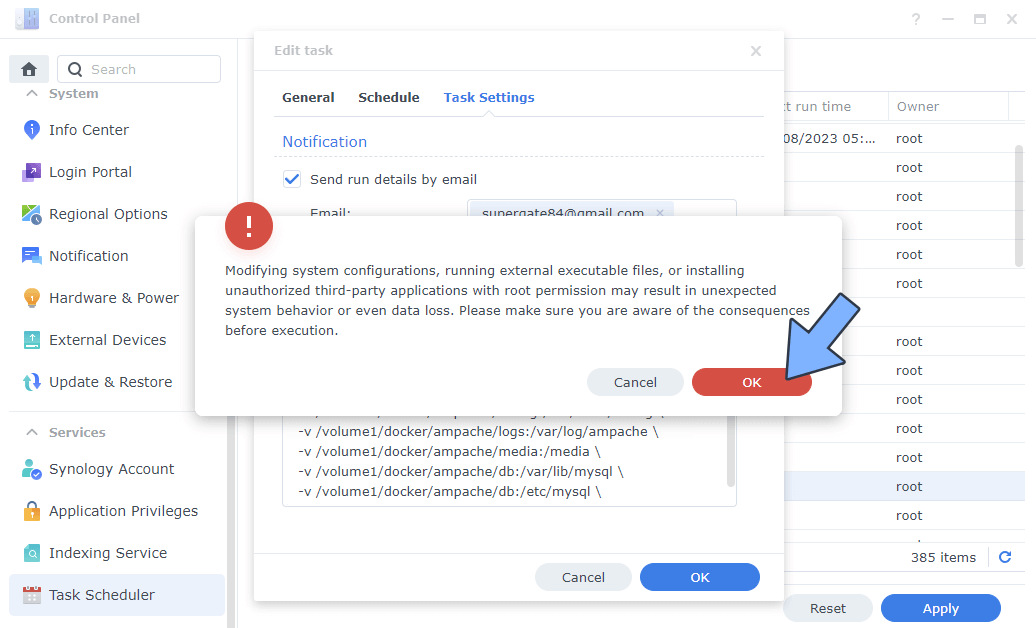
After you click OK, type in your DSM Password then click Submit. Follow the instructions in the image below.
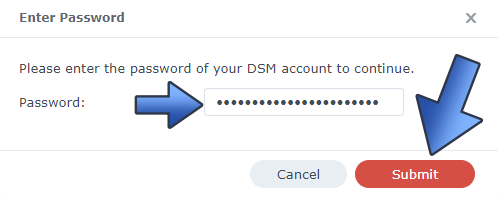
STEP 20
After you click Submit on STEP 19, select your “Install Ampache” Task then click the “Run” tab. You will be asked to run Install Ampache – click OK. Follow the instructions in the image below.
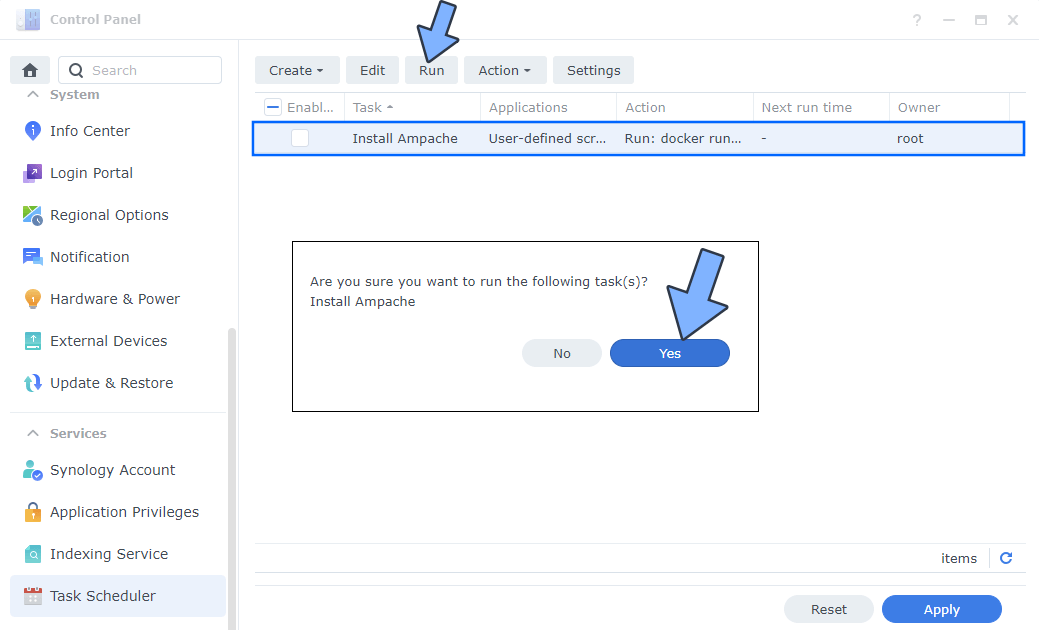
STEP 21
🟢Please Support My work by Making a Donation. Almost 99,9% of the people that install something using my guides forget to support my work, or just ignore STEP 1. I’ve been very honest about this aspect of my work since the beginning: I don’t run any ADS, I don’t require subscriptions, paid or otherwise, I don’t collect IPs, emails, and I don’t have any referral links from Amazon or other merchants. I also don’t have any POP-UPs or COOKIES. I have repeatedly been told over the years how much I have contributed to the community. It’s something I love doing and have been honest about my passion since the beginning. But I also Need The Community to Support me Back to be able to continue doing this work.
STEP 22
Now open your browser and type in your HTTPS/SSL certificate like this https://ampache.yourname.synology.me In my case it’s https://ampache.mariushosting.synology.me If everything goes right, you will see the Ampache installation page. Choose your language then click Start Configuration. Follow the instructions in the image below.
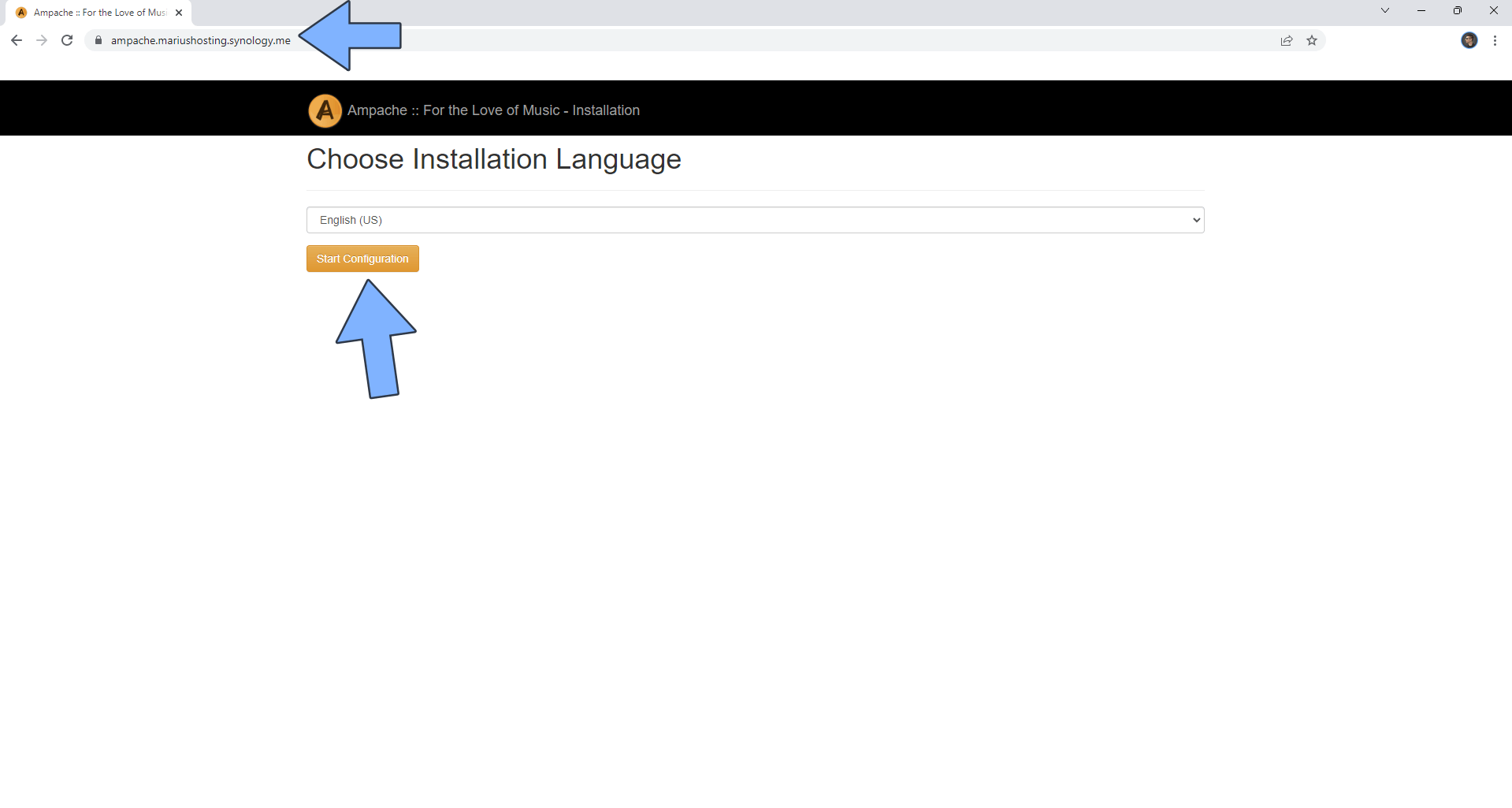
STEP 23
Scroll down the page a little bit then click Continue. Follow the instructions in the image below.
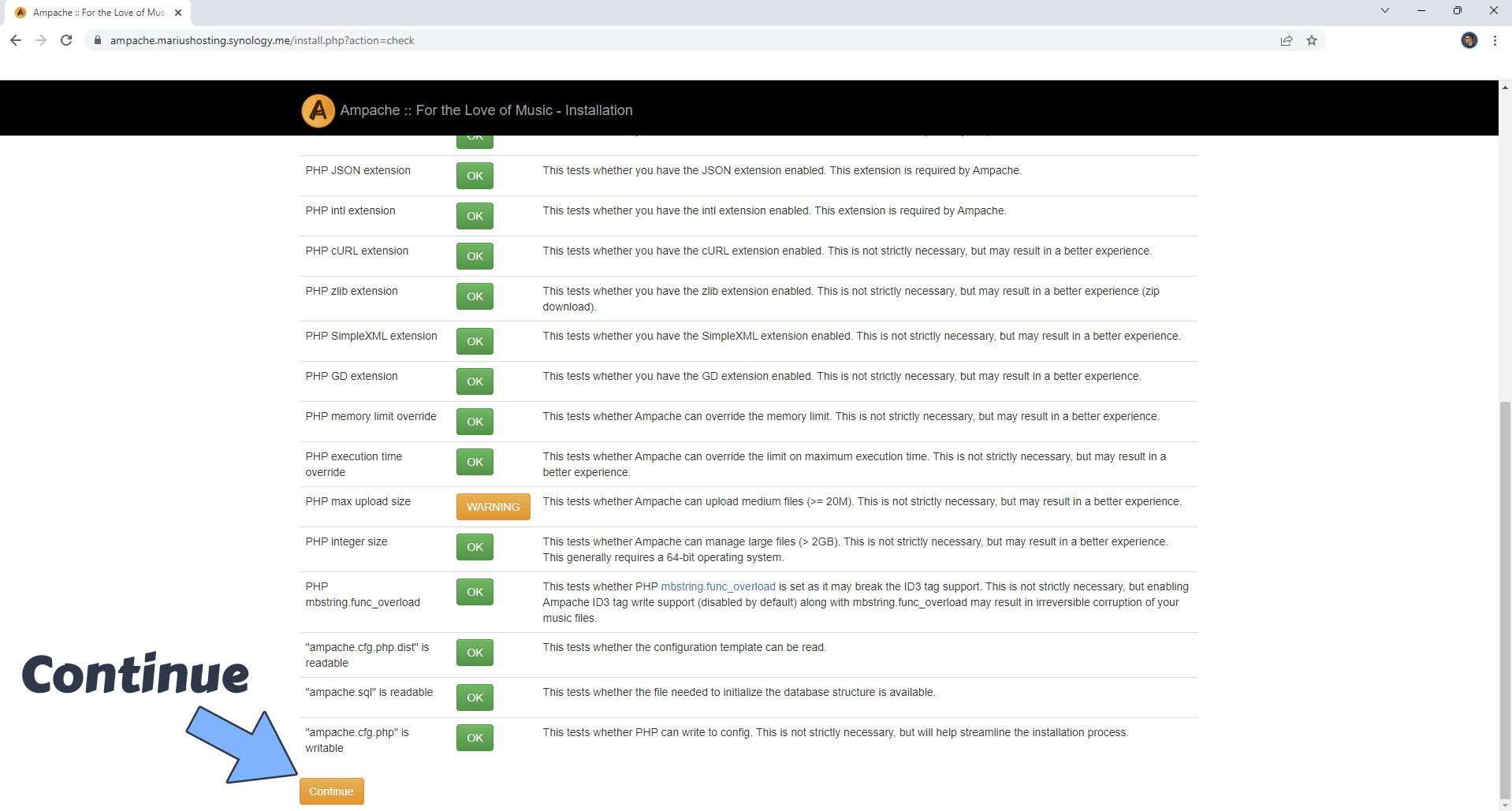
STEP 24
Check “Create Database User“. Type in your own database username and your own database password. Click Insert Database. Follow the instructions in the image below.
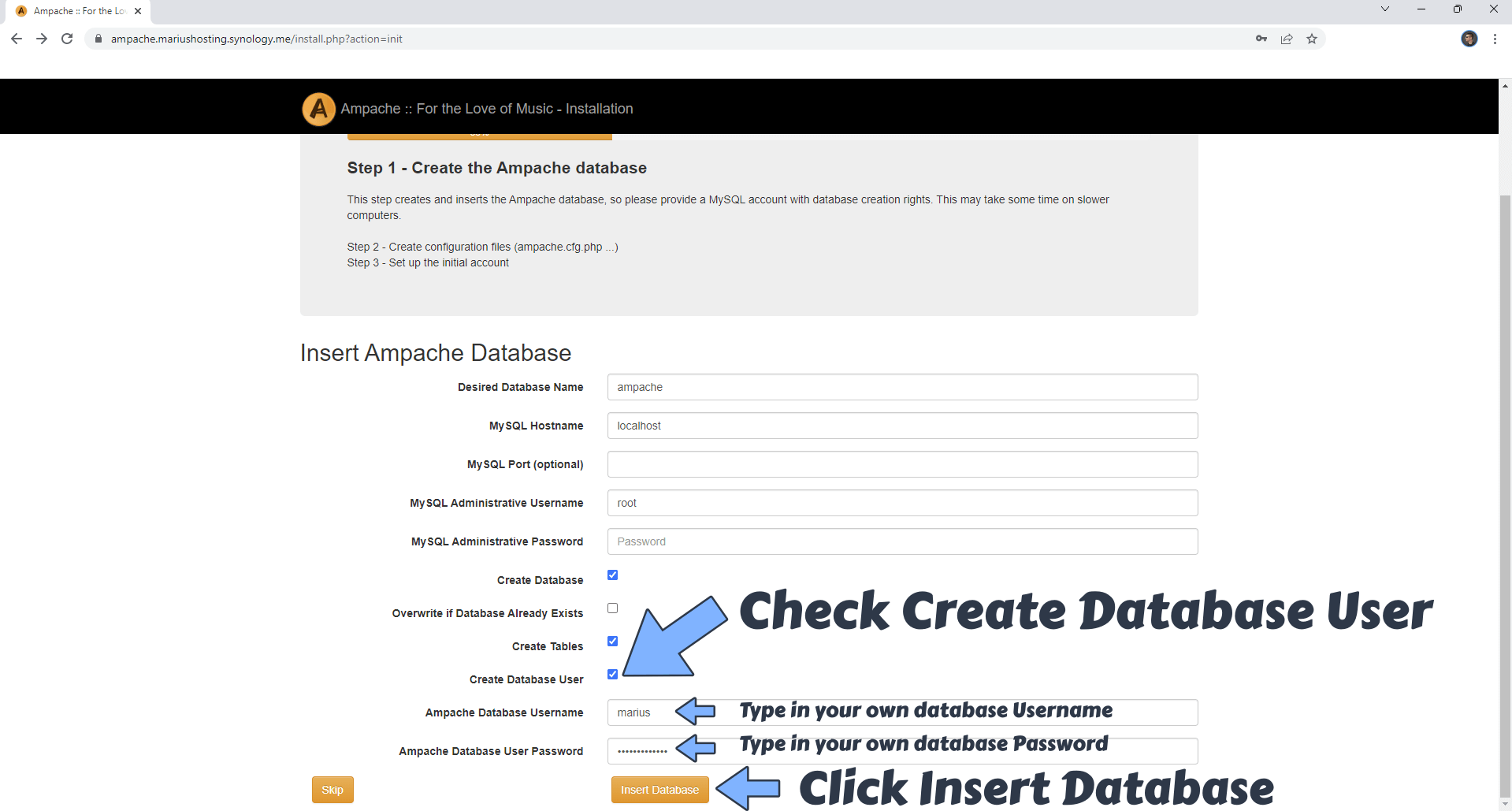
STEP 25
From the dropdown menu select ffmpeg then click Create Config. Follow the instructions in the image below.
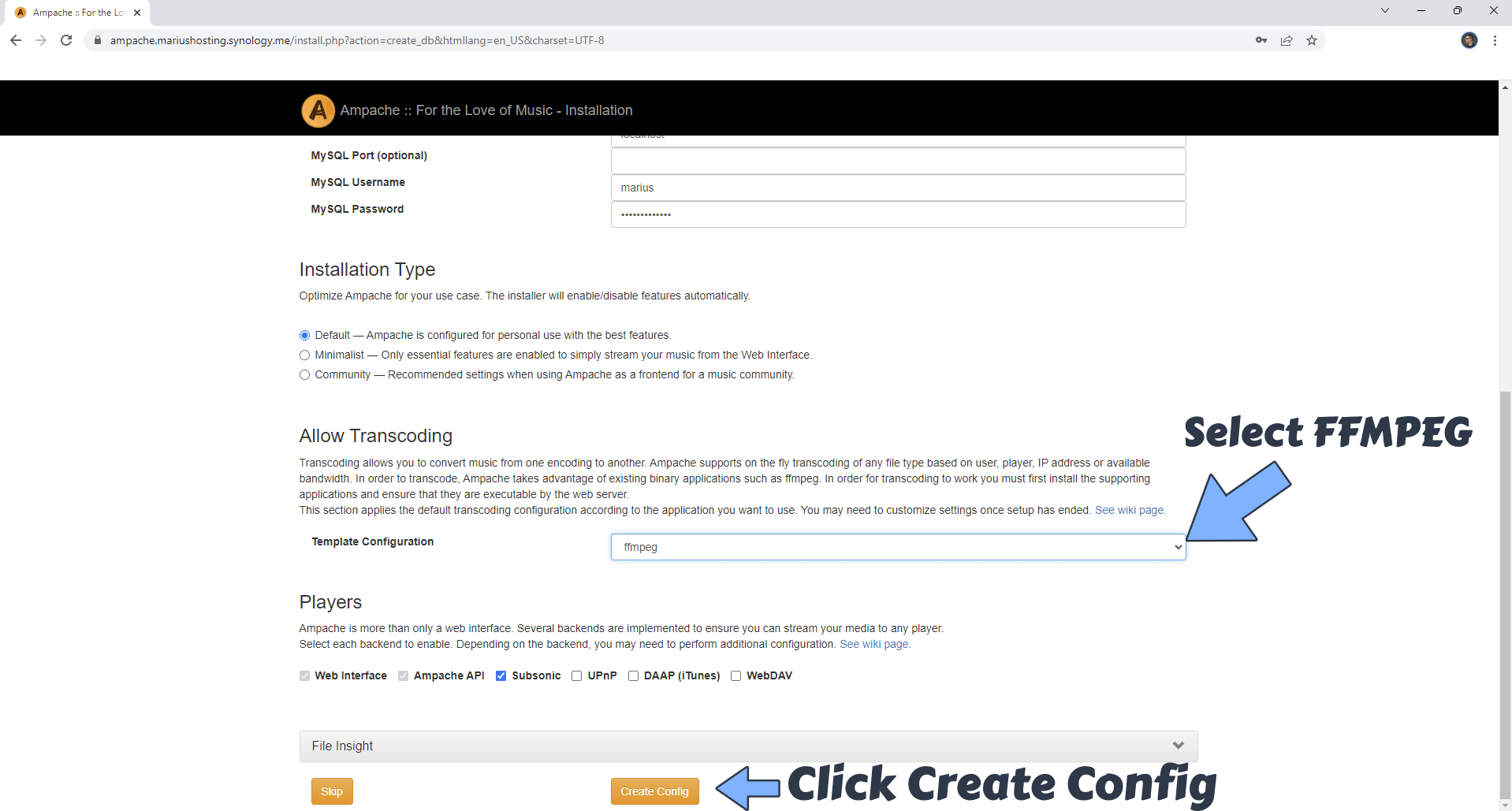
STEP 26
Type in your own Ampache admin username and password then click Create. Warning: Do not confuse the database username and password from STEP 24 with the ones from this STEP – they are two different things. You have to insert a new username and password for the ampache admin dashboard. Follow the instructions in the image below.
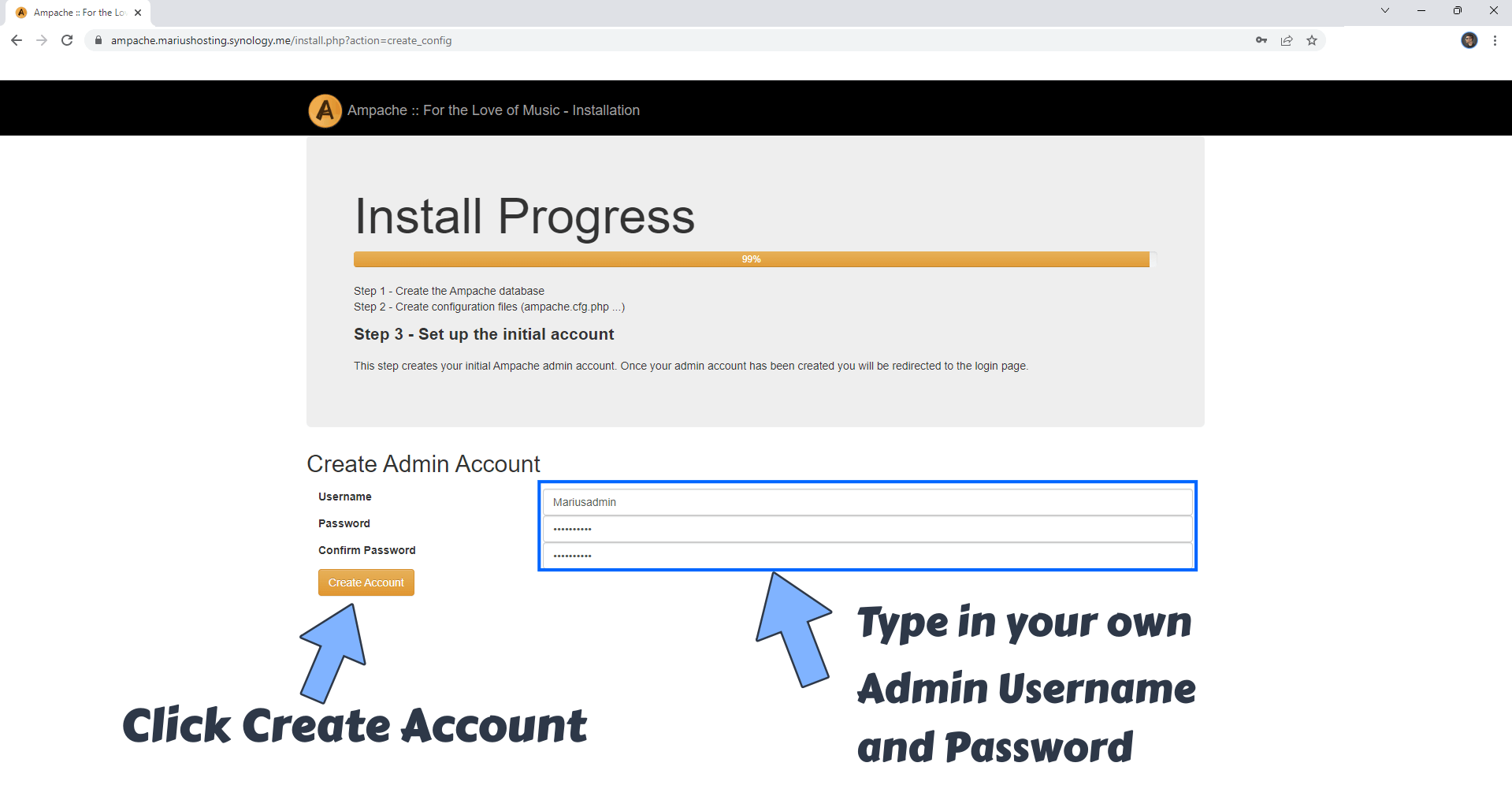
STEP 27
Type in your own Username and Password that you have previously created at STEP 26 then click Login. Follow the instructions in the image below.
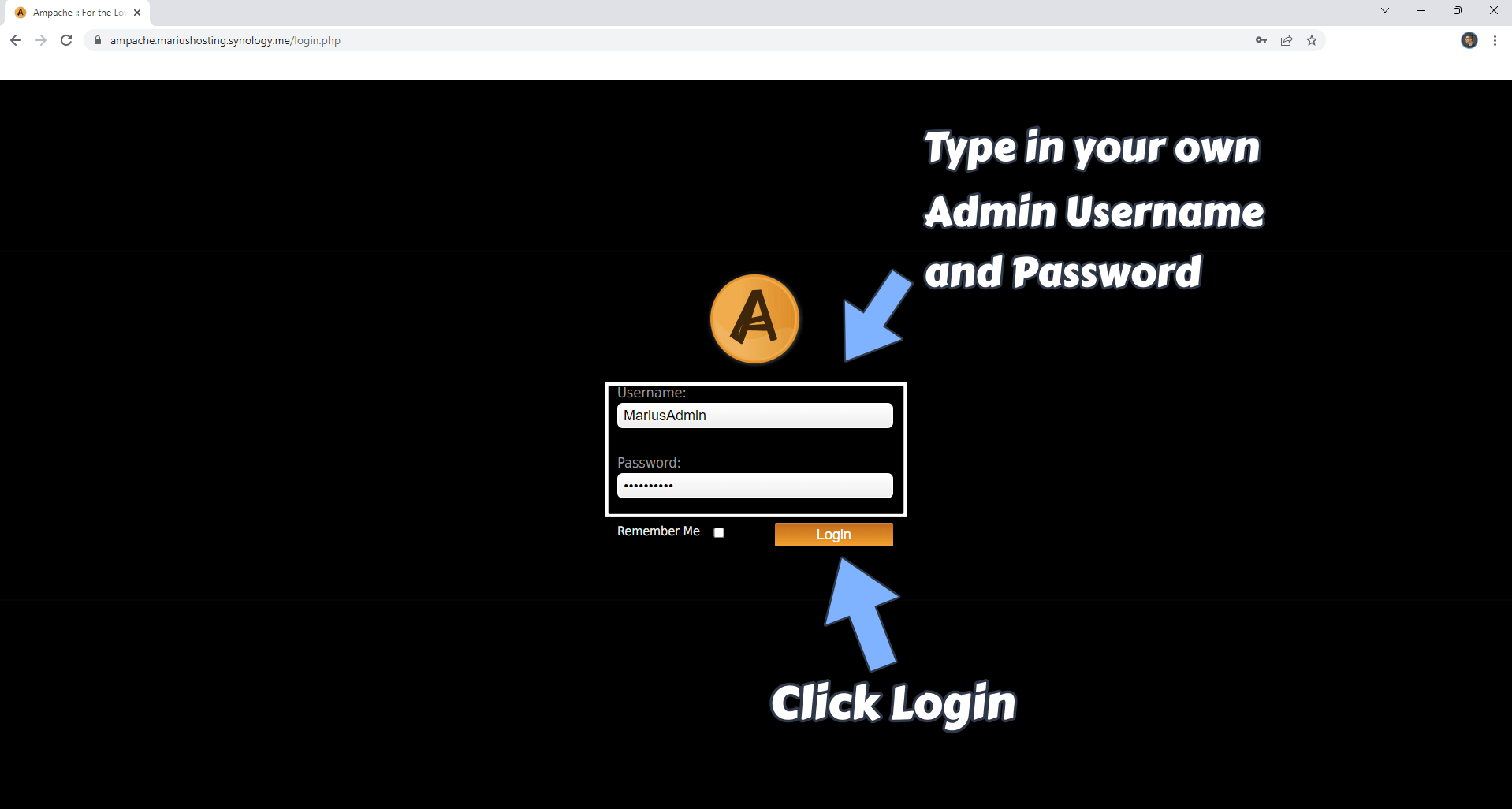
STEP 28
Your Ampache Dashboard at a Glance!
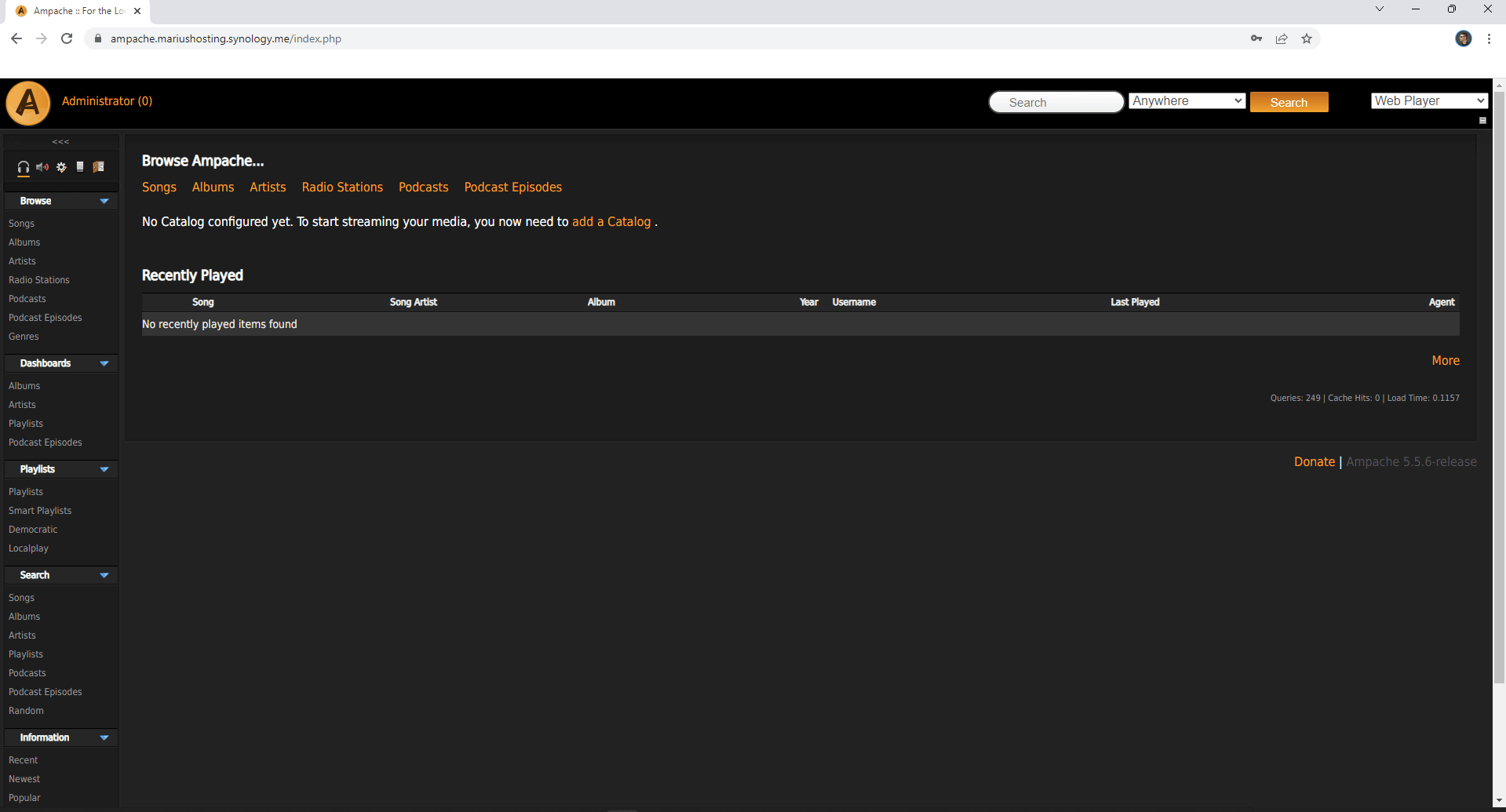
Enjoy Ampache!
Note: Find out how to update the Ampache container with the latest image.
Note: Can I run Docker on my Synology NAS? See the supported models.
Note: How to Back Up Docker Containers on your Synology NAS.
Note: How to Free Disk Space on Your NAS if You Run Docker.
Note: How to Schedule Start & Stop For Docker Containers.
Note: How to Activate Email Notifications.
Note: How to Add Access Control Profile on Your NAS.
Note: How to Change Docker Containers Restart Policy.
Note: How to Use Docker Containers With VPN.
Note: Convert Docker Run Into Docker Compose.
Note: How to Clean Docker.
Note: How to Clean Docker Automatically.
Note: Best Practices When Using Docker and DDNS.
Note: Some Docker Containers Need WebSocket.
Note: Find out the Best NAS Models For Docker.
Note: Activate Gmail SMTP For Docker Containers.
This post was updated on Sunday / January 26th, 2025 at 8:18 PM
